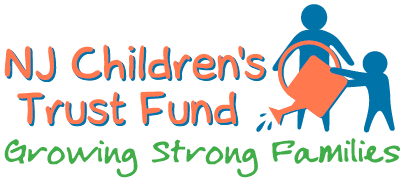Good morning, and thank you to Rush and Senator Vitale for inviting DCF to participate in this important discussion around the impact of childhood adversity in the Garden State.
In the child welfare arena, we’ve been aware of the long-term effects of Adverse Childhood Experiences, or ACEs, since the 1998 release of the CDC-Kaiser Permanente landmark study first coined the phrase.
We know that children who experience adversity in childhood have a higher likelihood to experience the negative consequences of that adversity well into adulthood – with higher prevalence for cardiovascular disease, poverty, relationship issues, mental health challenges, joblessness, substance abuse and more.
Last week, the CDC released a report titled Vital Signs which continues to showcase just how big of a problem ACEs are in our society.
From the CDC’s latest data:
- Sixty-one percent of adults had at least one ACE, and 16% had four or more types of ACEs – the threshold in which we start to see a jump in the prevalence of long-term effects;
- Five of the top ten leading causes of death in the United States are associated with ACEs;
- Women and marginalized minority groups were at a greater risk of experiencing four or more ACEs than white men;
- And estimates from the CDC indicate that, by preventing and disrupting ACEs, we could reduce the number of adults who experience depression by as much as 44%.
At DCF, we’re engaged in incorporating the ongoing study of ACEs into our work to keep New Jersey residents safe, healthy and connected.
Through a strategic realignment and re-envisioning of our work, we’re focusing more on outcomes, and on helping families heal and recover from trauma and ACEs.
We’ve worked with First Lady Tammy Murphy and an interested consortium of nonprofits known as the NJ Funders ACEs Collaborative to increase awareness around ACEs in child- and family-serving agencies and social service programs.
Through our partnership with the First Lady and the Funders Collaborative, we will be able to bring an Executive on Loan to New Jersey to coordinate and advise New Jersey’s public efforts to prevent, protect against, and heal ACEs…
…And while that Executive on Loan position will be situated in DCF, they will work across the entirety of State government, because we know that ACEs demand nothing short of an all-of-State-government solution.
The services we provide and the treatments we offer – in collaboration with our partners throughout the child welfare system – needs to be mindful of children’s past adversity in a way that’s both recuperative and restorative.
In partnership with Rush and the team at Prevent Child Abuse New Jersey, we’ve launched the Connections Matter training to bring ACEs to the forefront of our work in child welfare.
We’ve already engaged in the Train-the-Trainer sessions last month, and we expect to have 3,000 people trained within 3 months on this important curriculum.
Our knowledge around the long-term effects of ACEs and trauma continues to grow every day, with new and promising practices identified to help us connect to the children and youth in our care.
We need to be aware of the latest science, and incorporate it in a meaningful way that makes a difference for the children and families that we serve.
I’m optimistic that with leaders like Prevent Child Abuse and Senator Vitale, that ACEs will continue to be an important policy issue for many years to come.
This is a public health epidemic, and it’s going to take all of us, working together, to make an impact, to reduce childhood adversity and to give children the opportunity for a healthy, trauma-free childhood. Thank you.








